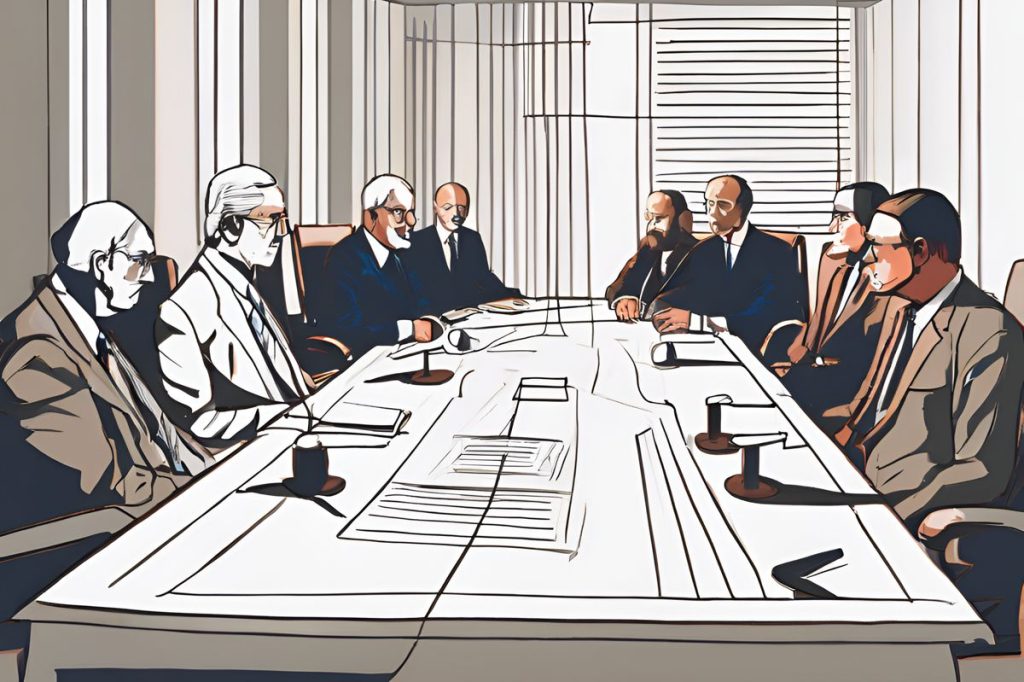Efforts to reconcile Cyprus are ongoing, with optimism from Greek Cypriot leader, Nikos Christodoulides, about restarting dialogue. UN envoy Maria Angela Holguin’s upcoming visit and discussions in European capitals are seen as pivotal, despite Turkey’s opposition to linking the issue with EU relations.
What is the current status of reconciliation efforts in Cyprus?
Efforts to reconcile the divided island of Cyprus are ongoing, with recent optimism from the Greek Cypriot leader about restarting dialogue. Upcoming visits by UN envoy Maria Angela Holguin and discussions in European capitals are seen as pivotal in fostering favorable conditions for negotiations. However, Turkey’s opposition to linking the issue with EU relations and regional tensions highlight the challenges in finding common ground.
Diplomatic Efforts and the Greek Cypriot Leader’s Proposal
Cyprus has long been a point of contention, with its northern and southern parts divided, and efforts to reconcile these differences have been ongoing. Recently, President Nikos Christodoulides of the Greek Cypriot administration elaborated on a new strategy aimed at fostering favorable conditions for all parties in the Cyprus dispute. On his way to a Cyprus Youth Organisation event, he expressed optimism about restarting dialogue but stopped short of providing specific details about the plan.
Christodoulides referenced two significant events that could potentially influence the situation. The first is a meeting scheduled by German President Frank-Walter Steinmeier with Turkish officials. The second is an upcoming visit to the island by the UN Secretary-General’s personal envoy, Maria Angela Holguin, occurring in early May. Before her trip to Cyprus, Holguin plans to engage in discussions regarding Cyprus in Paris, Brussels, and Berlin, which could play a pivotal role in setting the stage for further negotiations.
The International Context and European Involvement
Given the European Union’s (EU) vested interest in the region, developments in Cyprus are inevitably linked to Euro-Turkish relations. This link was highlighted at an extraordinary European Council in Brussels, which saw a reiteration of full support for a comprehensive solution to the Cyprus problem, grounded in UN frameworks and prior Security Council resolutions. Christodoulides pointed out that regardless of Turkey’s position, its relationship with the EU is intertwined with progress on the Cyprus issue.
Turkey’s rebuttal was clear and immediate, with an official statement declaring that linking Turkey-EU relations to the Cyprus issue is unacceptable. The Turkish Cypriot leadership also voiced disapproval, attributing the stagnation of the Cyprus problem to EU policies. Such statements underscore the challenge of finding common ground and the need for careful diplomatic navigation.
Regional Responses and Future Encounters
As tensions persist, both sides await developments following the European Council’s conclusions. The Greek Cypriot side remains prepared and hopeful for positive changes. Christodoulides’ administration is particularly watching for the impact these conclusions may have on Euro-Turkish dynamics, which are complex and fraught with historical and geopolitical nuances.
Key to the immediate future are the visits by Holguin, who since the beginning of the year, has made Cyprus a focal point of her duties. With two visits already completed by March, her third visit includes scheduled meetings with Christodoulides. These meetings are crucial as they may lay the groundwork for future negotiations and potential advancements in resolving the Cyprus dilemma.
The Continuing Impasse and Regional Implications
The Cyprus issue remains a sensitive and intricate topic within international relations. As the EU and Cyprus seek to navigate the impasse with Turkey and the Turkish Cypriot authorities, diplomatic efforts continue to be met with resistance. The interplay between European intentions and regional reactions creates a delicate balance that must be maintained to avoid further escalation.
At the heart of the matter is the quest for stability and peace in the region, which is not only significant for the inhabitants of Cyprus but also for the broader geopolitical landscape of the Mediterranean and beyond. The forthcoming meetings and diplomatic engagements are expected to be critical in shaping the path forward, and all eyes will be on the island nation as it strives to mend its divided past and forge a unified future.
What is the current status of reconciliation efforts in Cyprus?
Efforts to reconcile the divided island of Cyprus are ongoing, with recent optimism from the Greek Cypriot leader about restarting dialogue. Upcoming visits by UN envoy Maria Angela Holguin and discussions in European capitals are seen as pivotal in fostering favorable conditions for negotiations. However, Turkey’s opposition to linking the issue with EU relations and regional tensions highlight the challenges in finding common ground.
What diplomatic efforts have been made, and what is the Greek Cypriot leader’s proposal?
President Nikos Christodoulides of the Greek Cypriot administration has proposed a new strategy aimed at fostering favorable conditions for all parties in the Cyprus dispute. He expressed optimism about restarting dialogue but did not provide specific details about the plan. Diplomatic efforts include upcoming visits by UN envoy Maria Angela Holguin and discussions in European capitals. These efforts are seen as crucial in setting the stage for negotiations.
How is European involvement impacting the reconciliation efforts in Cyprus?
The European Union’s (EU) vested interest in the region has linked developments in Cyprus to Euro-Turkish relations. While the European Council has reiterated full support for a comprehensive solution to the Cyprus problem, grounded in UN frameworks, Turkey has expressed opposition to linking its relationship with the EU to the Cyprus issue. This complex interplay underscores the challenges in finding common ground and navigating diplomatic relations.
What are the regional responses and future encounters expected in the context of reconciliation in Cyprus?
As tensions persist, both sides are awaiting developments following the European Council’s conclusions. The Greek Cypriot side remains prepared and hopeful for positive changes. The upcoming visits by UN envoy Maria Angela Holguin, including meetings with Christodoulides, are crucial in shaping the future of negotiations and potential advancements in resolving the Cyprus dilemma.

